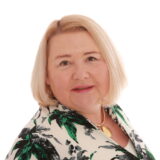Former Professor in constitutional, administrative and education law at Tilburg University, the Netherlands
Appeals Committee
The Appeals Committee considers potential appeals raised in case the Register Committee rejects an application for inclusion on the Register. An appeal can be lodged on procedural grounds or in cases of perversity of judgement.
The Appeals Committee consists of a chair, two further members, a deputy chair and two deputy members.
Members of the Appeals Committee are elected by the General Assembly for a mandate of four years, and can be re-elected twice. The members and deputy members of the Appeals Committee may not hold any other posts within EQAR.
The Appeals Committee convenes as necessary. If the Appeals Committee allows an appeal the case is referred back to the Register Committee for a new decision taking due account of the grounds of the appeal.
The official rules are specified in the Appeals Procedure.
Composition
The following members currently serve on the Appeals Committee:

Carolyn Campbell (Member)
Former Senior Consultant at the Observatory on Borderless Higher Education

Jiří Nantl (Deputy Chair)
Director of the Central European Institute of Technology (CEITEC), the research centre of the Masaryk University in Brno, Czech Republic

Janja Komljenovič (Member)
Senior Lecturer in Education Futures, University of Edinburgh, United Kingdom

Tatjana Volkova (Deputy Member)
Member of the Higher Education Council (Latvia) and the Chair of the Studies Quality Commission (Latvia)

